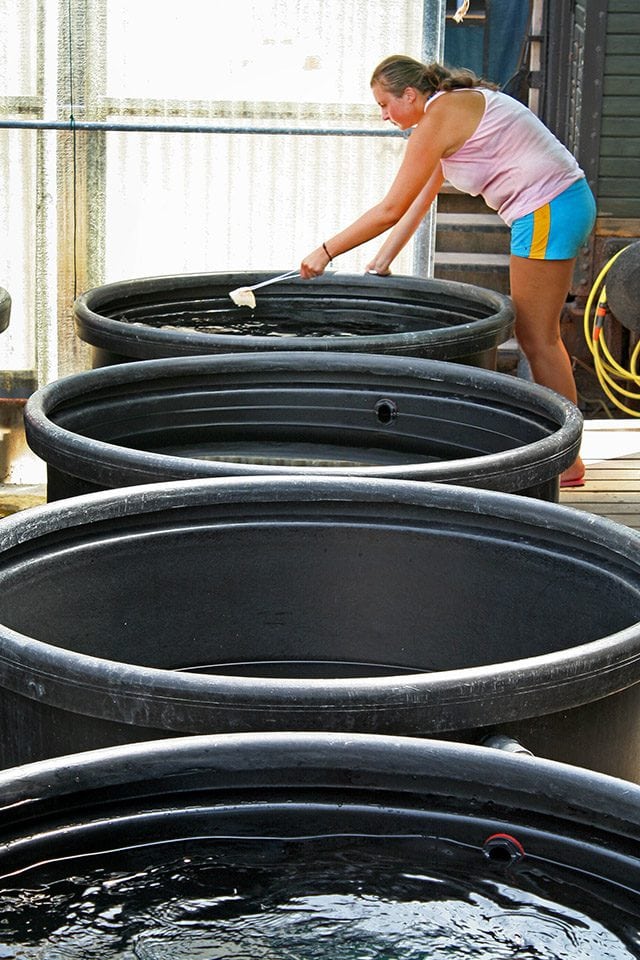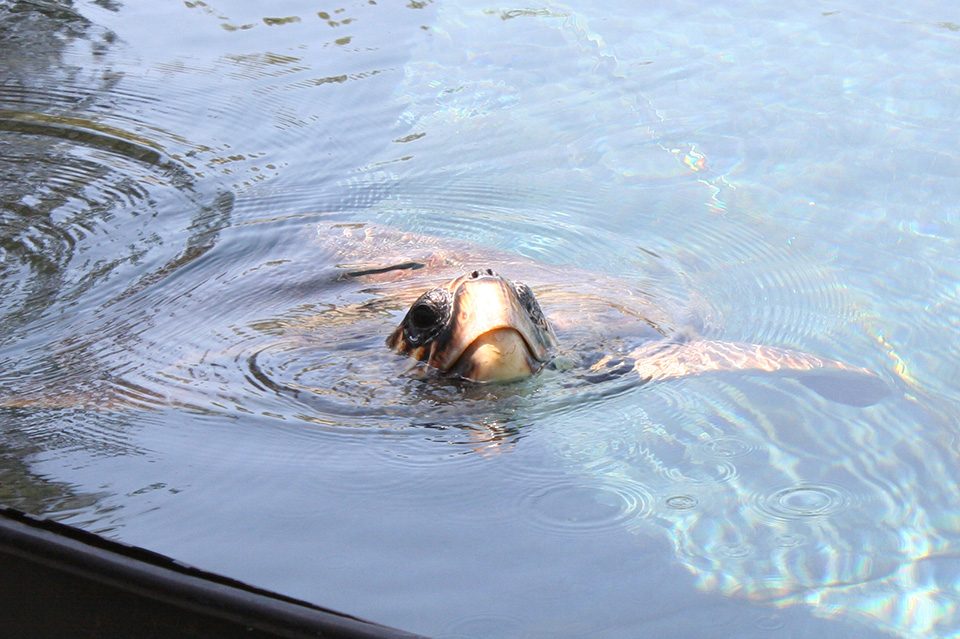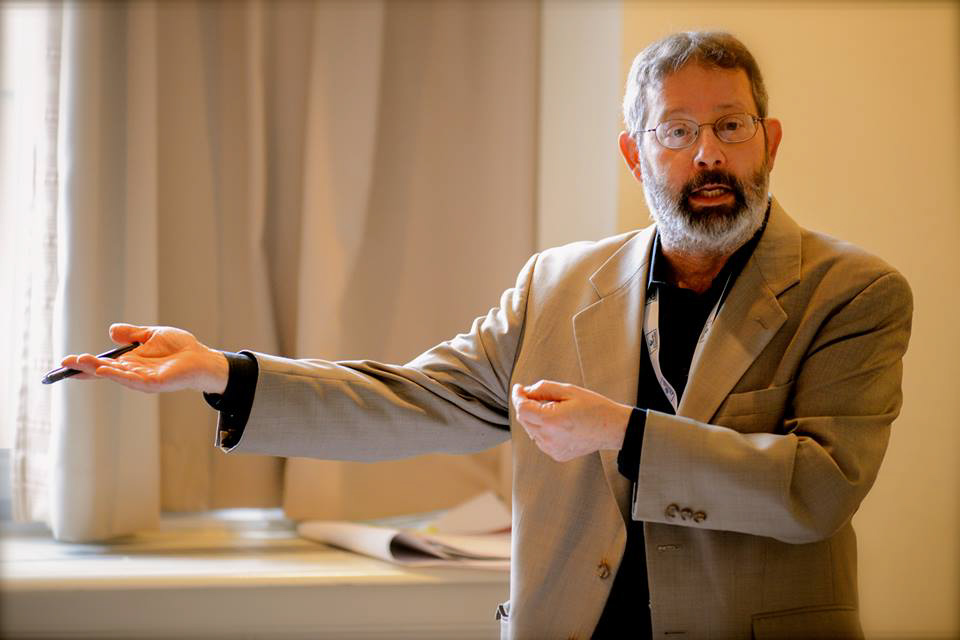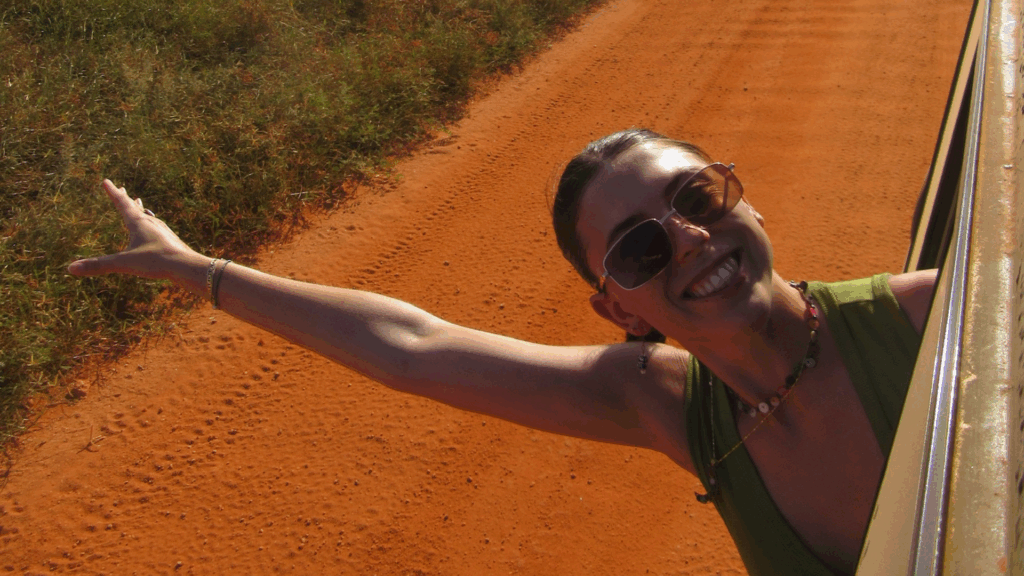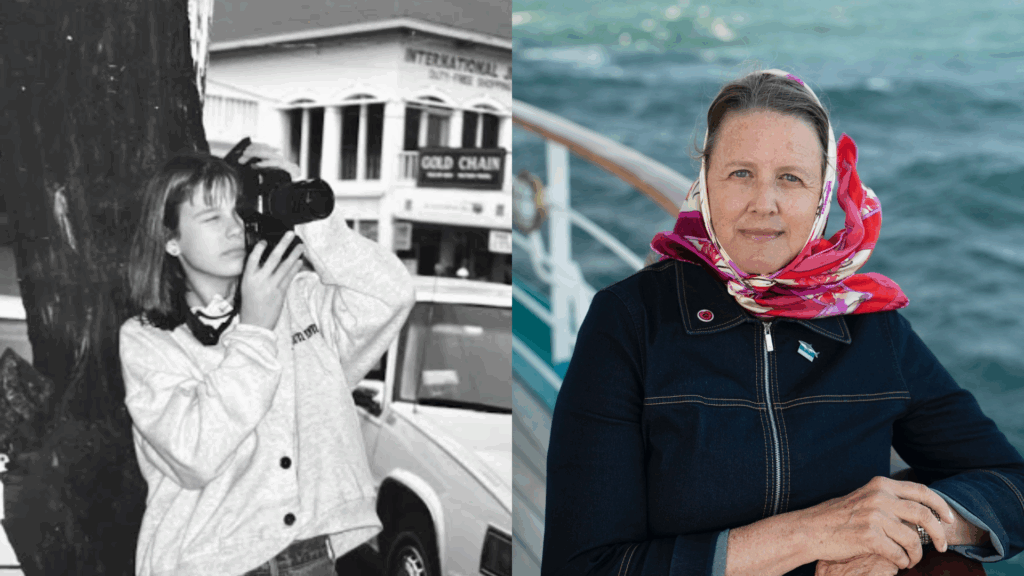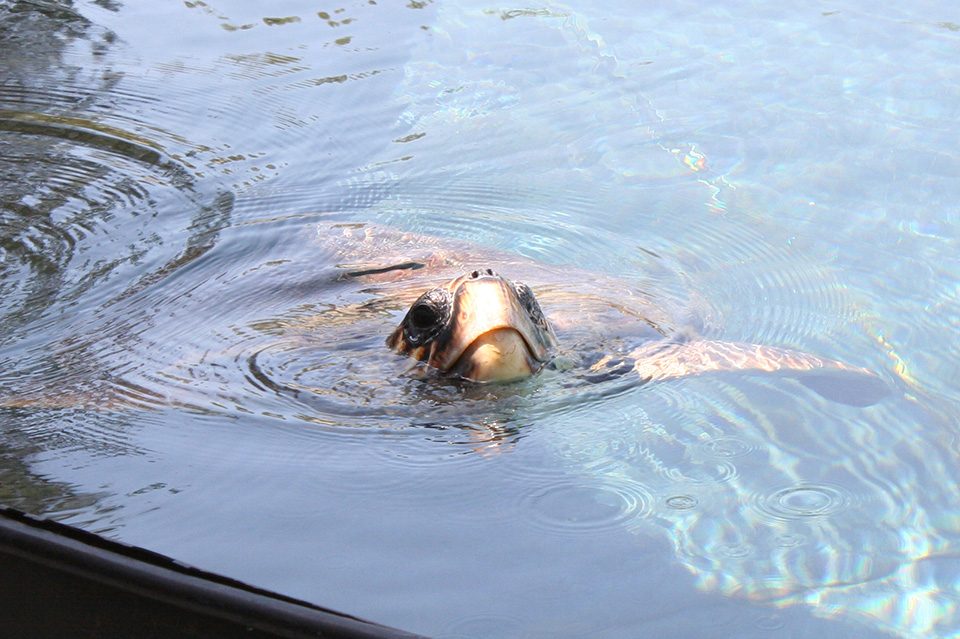
Executive Dean Kenn Gaither is also a professor on board the MV Explorer this summer; he is teaching Environmental Communications. His students have been learning about aspects of communication focusing around the environment as well as how to deconstruct and build a communications plan by identifying strategies and executing tactics.
While in Greece the class visits the Sea Turtle Rescue Center located in Athens. The center is part of the Sea Turtle Protection Society of Greece, and works to protect the sea turtles and their habitats in Greece though monitoring and research, and raising public awareness of issues facing sea turtles. Additionally, this specific center, named ARCHELON, rehabilitates sick and injured sea turtles, many injured by human interference. Turtles can get sick from ingesting plastic, getting caught in fishing nets, swallowing hooks, being cut by propellers, and sometimes turtles are even targeted for killing by fishermen.
Approximately 20,000 people visit the Rescue Center each year. The purpose of the students’ visit is to learn about the goals of the operations center and how it uses communication, public relations, and educational outreach to achieve those goals.
Turtles have a long and difficult road to reproduction. They lay their eggs under the sand, where they can be smashed or eaten by other animals. After 6 weeks of incubation, they use the sheen of the moon to find their way back to the water, a sign that can be easily confused by car and street lights. If they can make the trek back into the ocean without getting swallowed up by a hungry bird, they then must survive on their own for twenty years before they can reproduce. Mature turtles always return to the beach where they were born to lay eggs; in some cases the beach has been dramatically changed into a harbor or a resort. Ultimately, it takes 1,000 turtle eggs for just two turtles to survive long enough to lay more eggs.
“All this conservation would be quite useless if we didn’t have any communications or public awareness program. Communication is the key to everything. For basic things like getting volunteers, or having policies changed on the state level. And of course for funding,” says ARCHELON ‘s manager Pavlos Tsaros. The organization survives solely on donations and sponsorships.
The Turtle Society speaks with more than 100,000 people from across the globe every year, and in Athens Tsaros teaches more than 10,000 children per year.
The students get hands-on experience with the injured turtles, and leave ARCHELON talking about educating key audiences about turtles. This is the exact communications strategy that Dean Gaither is teaching his students about through diffusion theory. Early ad0ptors learn of something and spread it throughout their own community networks. At lunch the students discuss this theory and analyze the strategy and tactics that ARCHELON is using to get its message out. They also discuss the discourses that accrue around the environment and turtles in that environment
For many students, Dean Gaither’s class brings together their values regarding the environment with practical skills for a future career in mass media.
Communications provide the context for all science to influence behavior and improve our environment.
Executive Dean Kenn Gaither
